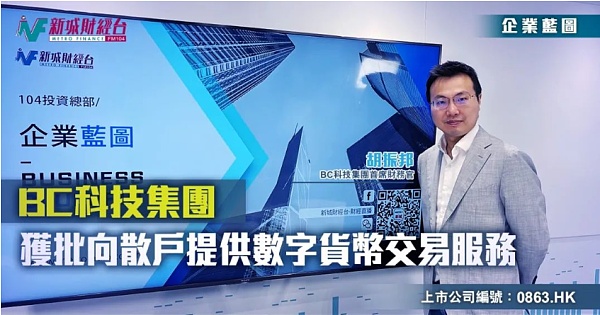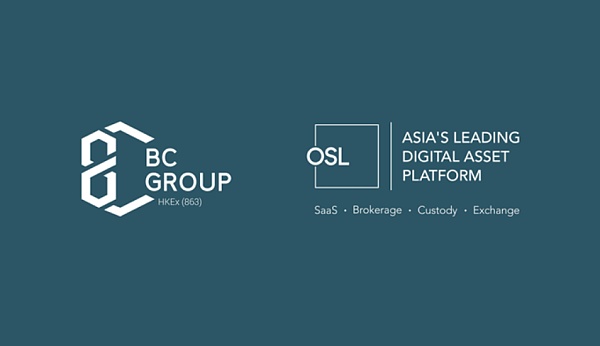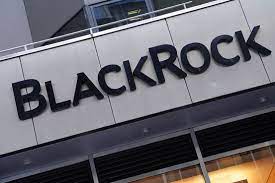Enterprise Blueprint BC Technology Group (0863) approved to provide digital currency trading services to retail investors.
BC Technology Group (0863) approved to offer digital currency trading services to retail investors.Company: BC Technology Group (0863)
Host: Zhu Mingliang
Guest: Davin Hu, Chief Financial Officer of BC Technology Group

- Interpreting the Current Situation of Velodrome V2 Upgrade Record High Revenue, but Token Value Doesn’t Match the Increase in Issuance
- Research Report Arbitrum
- Who is behind Binance A Borderless Company in 4000 Resumes
Approved to Provide Digital Currency Trading Services to Retail Investors
Since the release of the “Policy Declaration on the Development of Virtual Assets in Hong Kong” in October 2022, the development has accelerated. Starting from June 1st of this year, Hong Kong officially implemented the Virtual Asset Service Provider (VASP) licensing regime, which requires all virtual asset trading platforms operating in Hong Kong to obtain licenses issued by the Securities and Futures Commission (SFC). In addition, it allows retail investors to trade virtual assets. OSL Digital Securities, a subsidiary of BC Technology Group (0863), as the first company to apply for a license from the SFC, successfully upgraded its existing license to provide trading services for mainstream virtual assets such as Bitcoin and Ethereum to retail investors. Davin Hu, Chief Financial Officer of BC Technology Group, pointed out in an interview with Xincheng Finance’s “Enterprise Blueprint” that Hong Kong’s policy on the development of digital assets is clear and is expected to attract funds, family offices, and others to invest in Hong Kong. Local institutions are believed to increasingly access regulated platforms licensed by the SFC in order to provide digital asset trading and custody services to clients. (By Zhu Mingliang)
Hong Kong is accelerating the development of the digital economy. In October 2022, it released the “Policy Declaration on the Development of Virtual Assets in Hong Kong,” which outlined Hong Kong’s commitment to the development of virtual assets. The new virtual asset trading platform licensing regime came into effect on June 1, 2023. All central virtual asset trading platforms operating in Hong Kong or actively promoting their services to Hong Kong investors must obtain licenses from the SFC and be regulated by it.
Through its subsidiary OSL Digital Asset Trading Platform, BC Technology Group provides digital asset trading services to clients. As early as 2020, when the Hong Kong government had not yet proposed regulations for digital trading platforms, BC Technology Group took the initiative to seek regulation from the SFC and became the first company in Hong Kong to be issued with the Type 1 Securities Trading License and Type 7 Automated Trading License, enabling it to provide digital asset trading services to institutional investors.
Since OSL was already operating a virtual asset trading platform in Hong Kong before June 1st, the SFC has also approved its upgrade of the existing license, allowing it to officially provide trading services for mainstream digital assets such as Bitcoin and Ethereum to retail investors.
Advantages of Licensed Institutions Evident
Davin Hu stated that the new policy has changed the voluntary licensing regime into a mandatory one, expanding OSL’s target audience from professional investors to retail investors. This policy is widely welcomed in the industry. It is also good news for investors because trading digital currencies on unregulated overseas platforms carries high risks and it is difficult to hold them accountable when problems arise.

Due to operating under the supervision of the China Securities Regulatory Commission and its emphasis on compliance and high security, OSL has become its competitive advantage. In 2022, OSL’s digital asset platform saw a 48.9% annual increase in trading volume. With the continuous increase of institutional investors allocating digital assets, this is favorable for the development prospects of OSL and BC Group.
Currently, OSL’s digital asset and blockchain platform business continue to be the main source of income for BC Group. The business of OSL’s digital asset platform includes digital asset market business (bulk brokerage, trading, and custody) and digital asset technology infrastructure business (SaaS).
OSL’s digital asset service business generates revenue through transaction commissions, fees, or spreads from digital asset trading customers on the platform. Existing customers include high net worth individuals and professional investors.
In 2022, OSL’s total trading volume reached HKD 455.9 billion, an increase of 48.9% compared to 2021. Brokerage trading volume increased by 59.0% annually to HKD 375.5 billion. Exchange trading volume increased by 24.6% annually to HKD 65.8 billion.
Hu Zhenbang predicts that more and more digital asset custody businesses and exchanges will transfer to the Hong Kong market, accelerating the growth of the Hong Kong market in digital asset trading. With the development of the company’s business, the company has successfully introduced Singapore investment company GIC and Fidelity Fund as investors, further strengthening its financial strength. It has also completed layouts in important markets such as Hong Kong, Singapore, and the United Kingdom.
Raising the threshold to protect investor rights
In the past few years, digital assets have only recently seen a resurgence of funds flowing in after facing events such as the Luna explosion, FTX collapse, and even the suppression of digital currency exchanges by the US Securities and Exchange Commission.
Hu Zhenbang pointed out that Hong Kong has strict regulations on digital assets. In addition to sufficient capital operations, a team with experience in digital asset management is also required. Obtaining a license is not easy just based on this alone. If you want to operate an exchange in Hong Kong, both custody and operation must be done well, and wallet maintenance and security must also be taken into account. Sufficient insurance for digital asset custody is necessary.
In operating an automated exchange in Hong Kong, system stability and security are also highly valued by regulatory agencies. Therefore, a comprehensive team with network security and a technology team are needed to maintain the trading system’s 24-hour operation. In addition, one must hire one of the Big Four accounting firms each year for auditing. In addition to auditing the finances, the entire operation process must be examined to ensure compliance.
After June 1st, many institutions have submitted applications, planning to provide digital currency trading services to retail investors. Hu Zhenbang said that based on experiences in other regions, the number of approved exchanges in the end is estimated to be small, probably around a dozen or so, but only three to five licensed institutions can ultimately continue to operate, such as in Japan and South Korea.
Hu Zhenbang also said that OSL is currently cooperating with multiple international banks, such as Standard Chartered Bank and DBS Bank, as well as smaller exchanges and securities firms. OSL wants to export their system to them, and it is expected that more financial institutions and securities firms in the Asian region will cooperate with them in the future.
We will continue to update Blocking; if you have any questions or suggestions, please contact us!
Was this article helpful?
93 out of 132 found this helpful
Related articles
- Coinbase has been approved to provide cryptocurrency futures services to retail traders in the United States.
- Coinbase CEO Canadians Are Moving Away from Cryptocurrency Speculation Trading
- In-depth study of the efficient cross-chain exchange protocol Chainflip
- CFTC Chairman 70% of cryptocurrency products should be classified as commodities
- Vitalik Buterin Social media experiment Community Notes embodies the spirit of encryption.
- Who is creating Binance A Borderless Company in 4,000 Resumes
- LianGuai Morning Post | Federal Reserve Meeting Minutes Core Inflation Will Significantly Decrease in the Second Half of the Year






